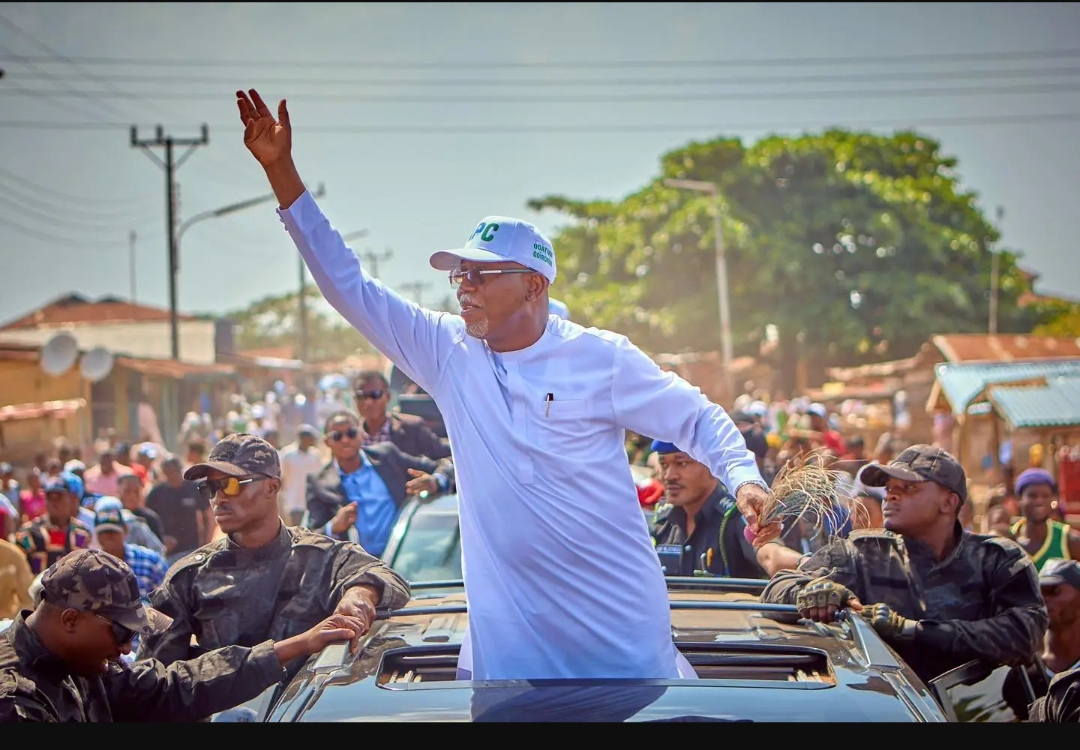Overview: Lucky Aiyedatiwa’s Landslide Victory
Governor Lucky Aiyedatiwa has emerged victorious in the Ondo State governorship election, achieving a sweeping victory across all 18 local government areas. Representing the All Progressives Congress (APC), Aiyedatiwa defeated candidates from five other parties in a dominant performance that underscores his popularity and political strategy.
Although the Independent National Electoral Commission (INEC) is yet to officially declare the result, the collation of votes indicates an unequivocal victory for the incumbent.
Election Highlights
Aiyedatiwa’s Performance
The governor’s remarkable performance across all 18 LGAs demonstrates his broad appeal and effective campaign. This is a rare achievement in Ondo State’s electoral history, consolidating Aiyedatiwa’s position as a formidable political leader.
Opposition Candidates and Results
Despite efforts from opposition candidates, none managed to secure a significant foothold in the state. Key challengers included:
– Falaiye Ajibola (Accord Party)
– Akinuli Omolere (Action Alliance)
– Olatunji Popoola (All Progressives Grand Alliance)
– Olorunfemi Ayodele (Labour Party)
– Agboola Ajayi (Peoples Democratic Party)
Agboola Ajayi, the PDP candidate and a former deputy governor, was expected to pose a significant challenge but ultimately fell short, failing to secure a win in any local government area.
Factors Behind Aiyedatiwa’s Victory
1. Governance and Achievements
Aiyedatiwa’s administration has focused on key developmental projects, which likely bolstered his reelection bid. Achievements include:
– Infrastructure Development: Notable road construction projects, including urban renewal initiatives in Akure and other key cities.
– Health Sector Improvements: Expansion of health facilities and introduction of free healthcare programs for women and children.
– Agricultural Growth: Investments in agriculture, including support for farmers through grants and mechanization initiatives, boosting Ondo’s position as an agricultural hub.
– Education: Revamping public schools with improved facilities and teacher training programs.
2. Effective Campaign Strategy
The APC ran a grassroots-focused campaign, leveraging the governor’s achievements and the party’s established network across the state.
3. Opposition Fragmentation
The divided opposition struggled to mount a united front, which diluted their impact and gave Aiyedatiwa an edge.
Observations
1. Voter Turnout
Voter turnout was moderate, with active participation in urban centers like Akure, Owo, and Ondo Town. However, rural turnout was relatively low, reflecting apathy among certain demographics.
2. INEC’s Role
The election process was largely peaceful and efficiently managed by INEC, with minimal reports of irregularities or logistical challenges.
3. Youth Engagement
Aiyedatiwa’s appeal to younger voters, through his initiatives supporting entrepreneurship and technology, played a key role in securing their support.
Reactions to Aiyedatiwa’s Victory
1. APC Supporters
Supporters of the APC celebrated the landslide victory, hailing it as a testament to the governor’s strong performance and the party’s dominance in Ondo State politics.
2. Opposition Parties
Opposition candidates have yet to formally react, but sources suggest internal reviews of their campaigns are underway. The PDP in particular faces questions about its strategy and candidate selection.
3. Political Analysts
Political observers highlight Aiyedatiwa’s broad-based appeal and his administration’s tangible achievements as key factors in the outcome.
Prospects for the Next Term
1. Consolidation of Achievements
Aiyedatiwa’s second term is expected to focus on consolidating the gains of his first term, particularly in infrastructure, agriculture, and education.
2. Challenges Ahead
The governor will need to address challenges such as:
– Rising Unemployment: Despite progress, job creation remains a pressing issue.
– Youth Discontent: Ensuring meaningful opportunities for young people is crucial.
– Economic Diversification: Expanding the state’s economy beyond agriculture and crude oil.
3. Inclusion and Unity
Aiyedatiwa’s inclusive governance style will be tested as he navigates relationships with opposition stakeholders and strives to unite the state post-election.
Achievements and Legacy
Lucky Aiyedatiwa’s tenure has been marked by significant achievements, which likely contributed to his reelection:
– Ondo Coastal Development Project: Spearheaded efforts to develop coastal areas, boosting trade and tourism.
– Youth Empowerment Programs: Initiatives such as skill acquisition programs and funding for startups have gained widespread acclaim.
– Environmental Initiatives: Commitment to environmental sustainability, including afforestation programs.
Expectations for Governance
1. Increased Focus on Technology: Expanding Ondo’s digital economy through innovation hubs and IT training programs.
2. Enhanced Security: Strengthening collaboration with local security outfits to combat rising insecurity in rural areas.
3. Economic Growth: Leveraging Ondo’s natural resources to attract investors and create jobs.
Political Implications
For the APC
The victory cements the APC’s dominance in Ondo State and boosts its position nationally as it prepares for future elections.
For the Opposition
The results underscore the need for opposition parties to reevaluate their strategies and prioritize unity to remain competitive.
Conclusion
Lucky Aiyedatiwa’s resounding victory in the Ondo governorship election is a testament to his administration’s achievements and effective political strategy. As he prepares for a second term, expectations are high for continued progress and a legacy of inclusive governance.
While challenges remain, Aiyedatiwa’s leadership offers a promising path for Ondo State’s development and prosperity.
This analysis provides a comprehensive overview of the election, incorporating reactions, achievements, and expectations, with a focus on key political and governance issues in Ondo State.
